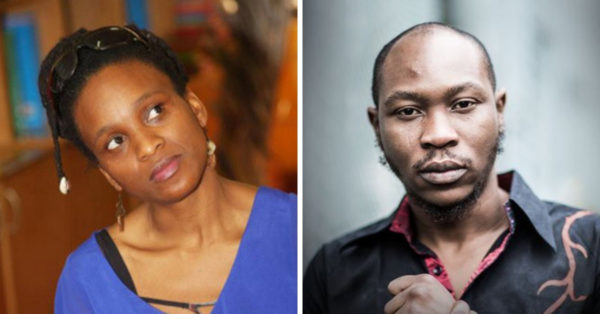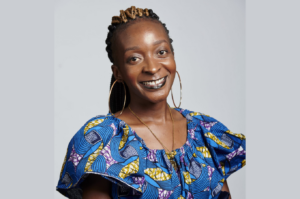
The long struggle of Nigerian entertainers with gender expectations, and in particular what feminism actually is, is well documented. From WizKid threatening to send his 16-year-old cousin to beat up Linda Ikeji to Davido recently body-shaming (and apologizing to) a young woman who questioned his political motivations, from Omotola Jalade Ekeinde’s “I don’t believe God made man and woman equal in any way” to Tiwa Savage’s own “I also don’t think men and women are equal . . . when we are home we have to realise that the man is the head of the house,” and to the writer Molara Wood and the journalist Kadaria Ahmed calling out Uti Nwachukwu’s attitude to dark-skinned women.
Recently, the novelist Chika Unigwe attended a live performance by the musician Seun Kuti. The performance was imperfect but she was okay with it, until Seun Kuti began talking about feminism and African women and their hair. His comments are even more disappointing given that his grandmother was the great Chief Funmilayo Ransome-Kuti, an internationally renowned feminist. But then his father was Fela Kuti, whose song “Lady” includes these lyrics—“Lady go say she equal to man . . . she go want make man wash plate for am . . . But African woman know say man na master, she go cook for am”—the source of a longrunning debate to which nearly every major blogger from Minna Salami to Ainehi Edoro has weighed in.
Read Chika Unigwe’s tweets below.
A few thoughts on @RealSeunKuti‘s performance at the #Masquerade last night. I always tell my students to begin their critiques by pointing out the positives so here goes:
— chika unigwe (@chikaunigwe) February 17, 2019
‘s performance was great. He is his father’s son. I had seen him years ago when I taught the Farafina workshop and he performed at the closing event
— chika unigwe (@chikaunigwe) February 17, 2019
we met one of his band members outside while we were lining up; I met up with old friends and met new people; got rid of some calories, thanks to the DJ who played while we waited (and waited) ; the jerk chicken was great
— chika unigwe (@chikaunigwe) February 17, 2019
But: the show started at 1.30 am (4 and a half hours late), by which time some friends of mine had left. The crowd had visibly thinned. A non-Nigerian friend I bumped into earlier on in the evening had come with his son (his wife couldn’t make it…
— chika unigwe (@chikaunigwe) February 17, 2019
Energy levels, even among die-hard fans like us, were low. Crowd kept thinning as he performed
— chika unigwe (@chikaunigwe) February 17, 2019
then mid-performance, @RealSeunKuti went on an odd, disjointed rant about the evils of #feminism. Apparently, all feminism has achieved is “making the CEOs of arms companies in America all women” and they are killing children on the streets.
— chika unigwe (@chikaunigwe) February 17, 2019
Also according to him, #feminism makes African women want to be equal to “white men” because of course, they can “never be equal to black men”
— chika unigwe (@chikaunigwe) February 17, 2019
@RealSeunKuti‘s grandmother was a firebrand! A groundbreaking feminist. I want to believe that she cheered on when I booed as loudly as I could and shouted at him from my vantage position that he was wrong about feminism
— chika unigwe (@chikaunigwe) February 17, 2019
and he should go back to singing. He also began to voice his thoughts- but didn’t pursue this for as long as his anti-feminist rant- on African women being pseudo-Africans for wearing straight hair extensions
— chika unigwe (@chikaunigwe) February 17, 2019
I wish @RealSeunKuti had shared his thoughts on #INEC‘s postponement of Naija elections; I wish he had kept his ill-formed and ill-informed views on feminism and women’s choice of how to wear their hair to himself
— chika unigwe (@chikaunigwe) February 17, 2019
I wish him well
— chika unigwe (@chikaunigwe) February 17, 2019
Correction:
An earlier version of this post incorrectly named Femi Kuti. It has since been corrected.









Otosirieze February 25, 2019 00:45
Thank you for the correction, Amena.